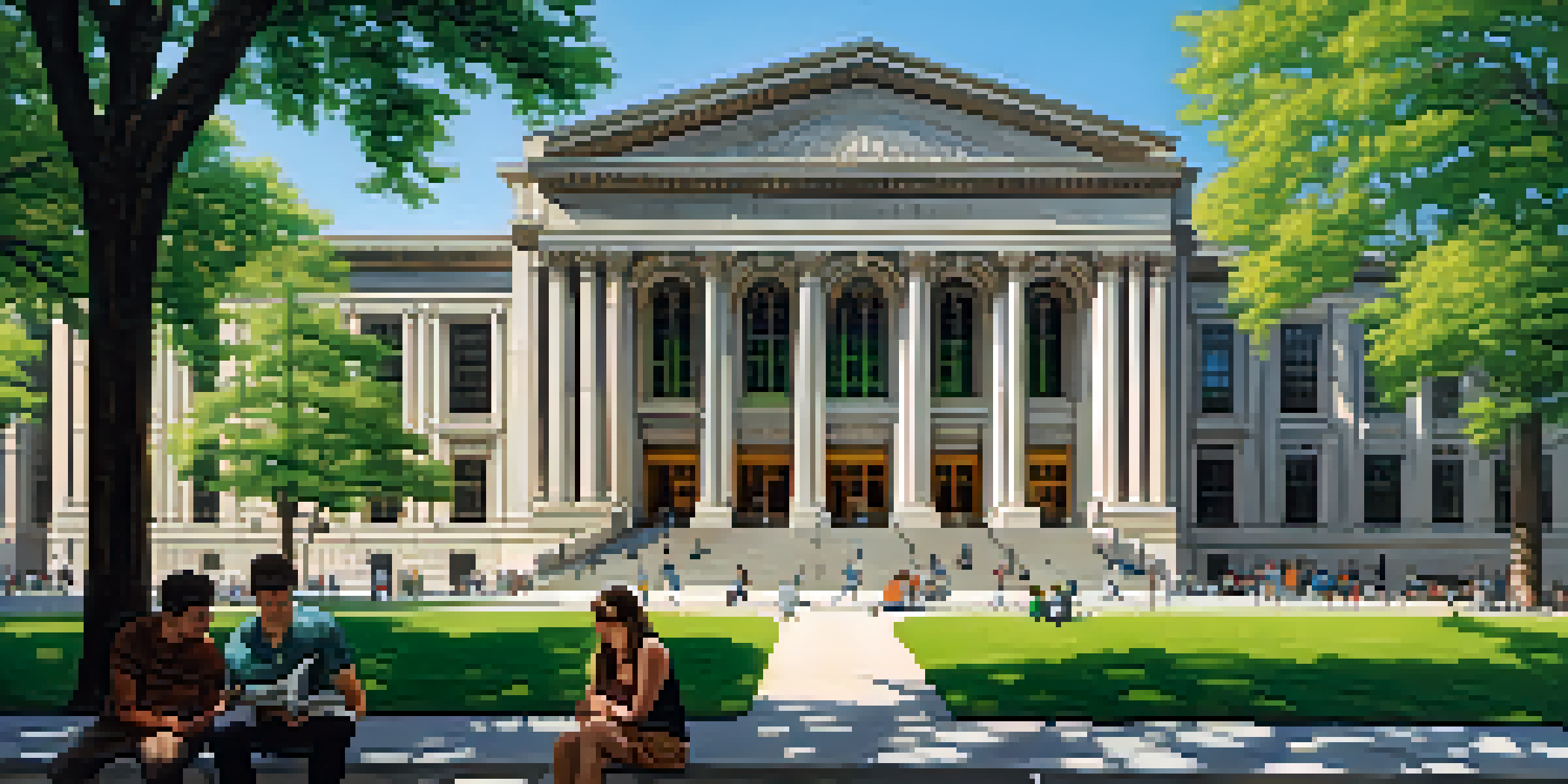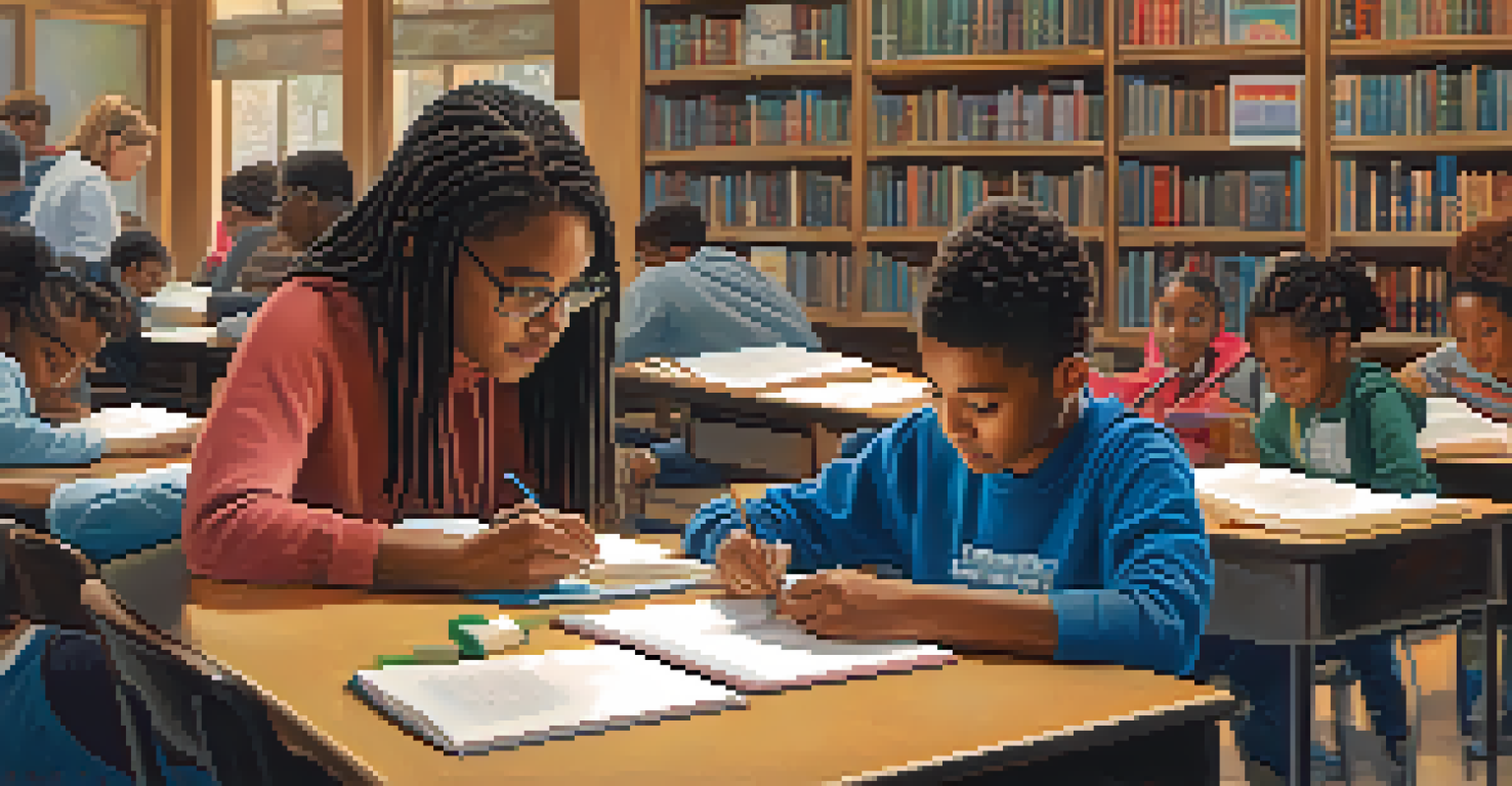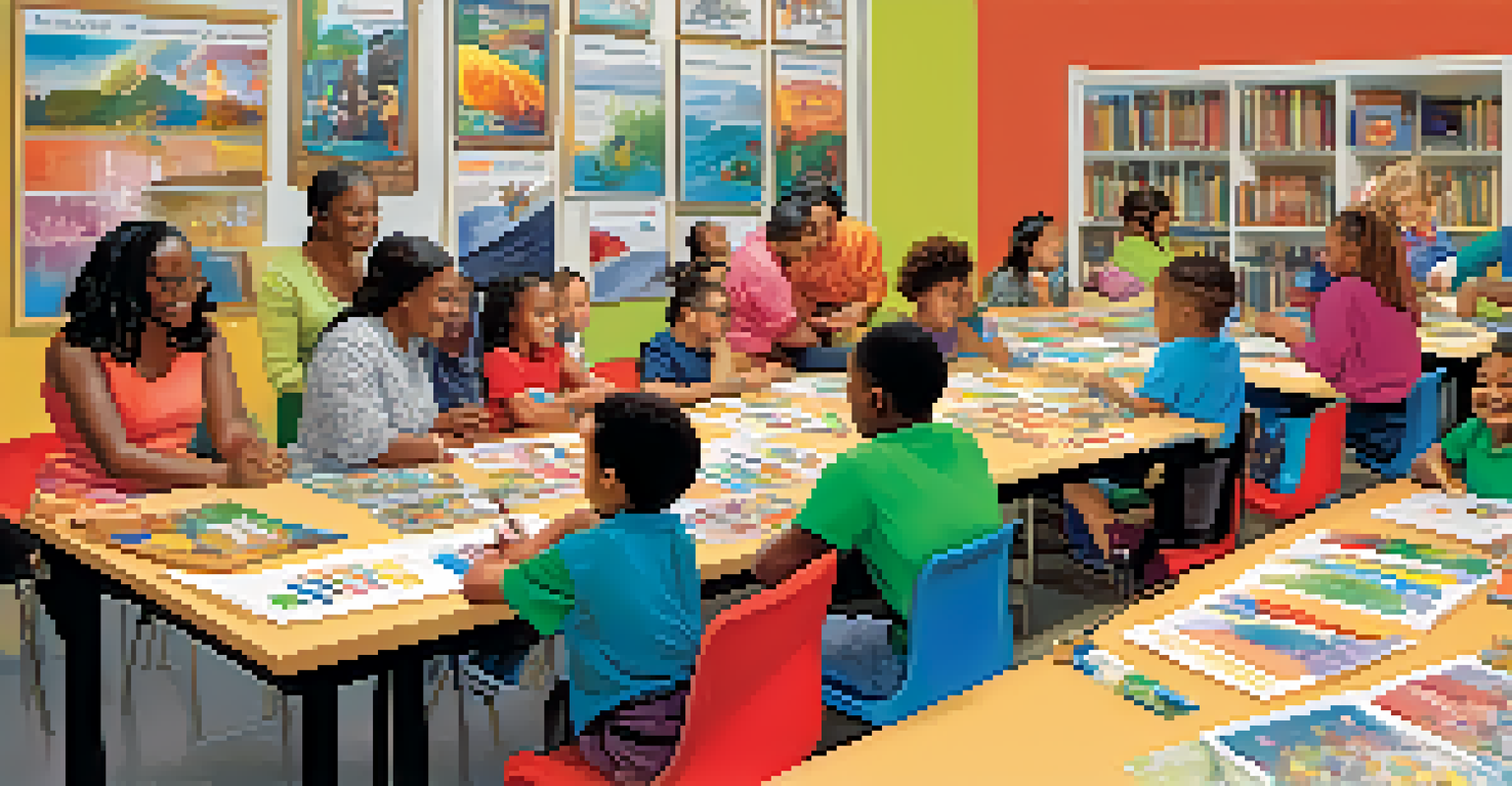The Impact of Detroit Libraries on Local Educational Outcomes

The Historical Significance of Detroit Libraries
Detroit libraries have a rich history that dates back to the 19th century, reflecting the city's commitment to education and community growth. These institutions were not just places to borrow books; they were centers for learning and social interaction. Over the years, they have evolved to meet the changing needs of the community, becoming vital resources for students and lifelong learners alike.
Libraries are the backbone of a community. They provide access to information, resources, and programs that empower individuals and foster lifelong learning.
The Detroit Public Library, for instance, has been a beacon of knowledge, providing access to a vast array of information and resources. Its historical significance also lies in its role during the civil rights movement, where libraries served as safe spaces for education and dialogue. This longstanding legacy highlights the importance of libraries in shaping educational opportunities for residents.
As Detroit continues to transform, the libraries remain steadfast in their mission, adapting to new technologies and educational trends. Their ability to serve as community hubs ensures that they will continue to impact local educational outcomes for generations to come.
Access to Resources and Learning Materials
One of the most significant impacts of Detroit libraries is their provision of access to diverse learning materials. They offer everything from books and magazines to online databases and educational software, catering to a wide range of interests and educational needs. This variety is crucial for students who may not have the same access at home, leveling the playing field for learners from all backgrounds.

Moreover, libraries often organize workshops and programs that encourage reading and literacy among children and adults. These initiatives can spark a love for learning, providing students with the skills they need to succeed academically. For example, summer reading programs help prevent the 'summer slide' by keeping kids engaged with books during their break.
Detroit Libraries: Community Hubs
Detroit libraries serve as vital community centers, promoting education and engagement for residents of all ages.
With the rise of digital resources, Detroit libraries have also embraced technology, offering e-books and online courses. This adaptability ensures that all community members can access educational resources, regardless of their circumstances, ultimately enhancing educational outcomes across the board.
Support for Students and Homework Help
Detroit libraries play an essential role in providing homework help and tutoring services for students. Many libraries offer after-school programs staffed by knowledgeable volunteers and educators, ensuring that students have the support they need to tackle their assignments. This assistance can significantly boost students' confidence and academic performance.
The only thing that you absolutely have to know is the location of the library.
In addition to in-person help, many libraries provide online resources and platforms where students can connect with tutors remotely. This flexibility is particularly beneficial for those who may have difficulty accessing in-person services due to transportation or time constraints. The availability of these resources underscores the library's commitment to supporting students' educational journeys.
By fostering a supportive learning environment, Detroit libraries empower students to take charge of their education. This level of engagement can lead to improved grades, higher graduation rates, and a more informed citizenry, ultimately benefiting the entire community.
Community Engagement and Lifelong Learning
Detroit libraries are more than just book repositories; they are vibrant community centers that promote lifelong learning. Through various programs, workshops, and events, libraries encourage residents of all ages to explore new topics and develop skills beyond traditional education. This commitment to community engagement fosters a culture of learning that extends far beyond the classroom.
For instance, libraries often host author talks, cultural events, and educational seminars that invite community members to participate and learn from experts. These events help to build a sense of belonging and connection within the community, making education an inclusive and shared experience. By cultivating these relationships, libraries strengthen the fabric of the community.
Support for Student Learning
These libraries provide essential resources and tutoring services that significantly enhance students' academic performance.
The emphasis on lifelong learning also encourages adults to pursue further education and skill development, which can lead to better job opportunities and personal growth. By offering resources that cater to diverse interests, Detroit libraries empower individuals to take control of their educational paths, enhancing overall community well-being.
Collaboration with Local Schools
Collaboration between Detroit libraries and local schools plays a crucial role in enhancing educational outcomes. Libraries often partner with educators to provide tailored resources and programs that align with school curricula. This synergy helps reinforce what students learn in the classroom, making education more cohesive and impactful.
For example, library staff may work with teachers to develop reading lists or host special events that complement classroom learning. These collaborative efforts ensure that students have access to the materials and support they need to succeed academically. Additionally, such partnerships can help bridge gaps in learning for students who may struggle in traditional settings.
As schools face increasing challenges, the role of libraries as educational partners becomes even more vital. By working together, libraries and schools can create a more enriching educational environment that benefits students, teachers, and the community as a whole.
Digital Literacy and Technology Access
In today's digital age, libraries are pivotal in promoting digital literacy among residents. Detroit libraries provide access to computers, the internet, and digital training programs that help individuals develop essential technology skills. This support is particularly crucial for those who may not have access to technology at home, ensuring they are not left behind in the information age.
Many libraries offer workshops on topics like coding, social media, and online research, enabling community members to navigate the digital world confidently. Such initiatives empower individuals to leverage technology for educational and professional growth, enhancing their overall quality of life. Moreover, these skills are increasingly important in the job market, making library programs an invaluable resource.
Emphasis on Digital Literacy
Detroit libraries play a crucial role in fostering digital literacy, offering technology access and training for all community members.
By prioritizing digital literacy, Detroit libraries are helping to create a more informed and tech-savvy community. This investment in technology education not only benefits individuals but also strengthens the local economy by preparing a workforce equipped for the demands of the modern job landscape.
The Future of Detroit Libraries in Education
As Detroit continues to evolve, the future of its libraries remains bright, particularly in the realm of education. With ongoing investments in technology and resources, these institutions are well-positioned to adapt to the changing needs of the community. Their commitment to providing equitable access to information ensures that all residents can benefit from educational opportunities.
Looking ahead, libraries are likely to expand their programs and partnerships with schools, businesses, and community organizations. By fostering collaboration and innovation, they can create even more impactful educational experiences. This forward-thinking approach will be essential in addressing the challenges and opportunities that lie ahead.

Ultimately, the role of Detroit libraries in education will continue to be a cornerstone of community development. Their ability to nurture a love for learning and provide essential resources will help shape a brighter future for the city's residents, one book and one program at a time.